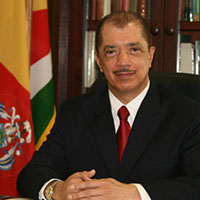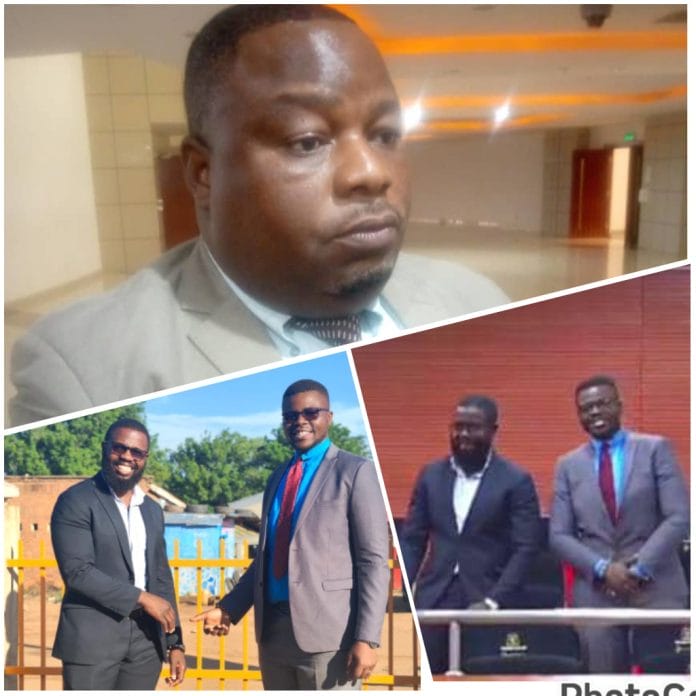
Biodiversity, Climate Action, Climate Change, Climate Change Finance, Conferences, COP30, Economy & Trade, Energy, Environment, Featured, Global, Headlines, Indigenous Rights, TerraViva United Nations
– When the world gathered in Glasgow for COP26, the mantra was “building back better.” Two years later, in Sharm El Sheikh, COP27 promised “implementation.”
This year, in Belém, Brazil, COP30 arrived with a heavier burden: to finally bridge the chasm between lofty rhetoric and the urgent, measurable steps needed to keep 1.5 °C alive.

James Alix Michel
What Was Expected of COP30 were modest yet critical. After the disappointments of Copenhagen (2009) and the optimism sparked by Paris (2015), developing nations, small island states, Indigenous groups and a swelling youth movement demanded three things:
- 1. Binding phase out timelines for coal, oil and gas.
2. A fully funded Loss and Damage Facility to compensate vulnerable countries already suffering climate impacts.
3. Scaled up adaptation finance—tripling the $120 billion a year pledge and ensuring it reaches the frontline communities that need it most.
However the negotiations evolved into a tug of war between ambition and inertia. Wealthier nations, still reeling from economic shocks, offered incremental increases in adaptation funding and a new Tropical Forests Forever Facility (TFFF) worth $125 billion, with 20 percent earmarked for Indigenous stewardship. The Global Implementation Accelerator—a two year bridge to align Nationally Determined Contributions (NDCs) with 1.5 °C—was launched, alongside a Just Transition Mechanism to share technology and financing.
However, the text on fossil fuel phase out remained voluntary; the Loss and Damage Fund was referenced but not capitalised; and the $120 billion adaptation pledge fell short of the $310 billion annual need.
But there were Voices That Could Not Be Ignored.
Developing Nations (the G77+China) reminded the plenary that climate justice is not a charity—it is a legal obligation under the UNFCCC. They demanded that historic emitters honor their “common but differentiated responsibilities.”
Island States(AOSIS) warned that sea level rise is no longer a future scenario; it is eroding coastlines and displacing entire cultures. Their plea: “1.5 °C is our survival, not a bargaining chip.”
Indigenous Peoples highlighted the destruction of Amazon and Boreal forests, urging that 30 percent of all climate finance flow directly to communities that protect 80 percent of biodiversity.
Youth — The Gen Z generation, marched outside the venue, chanting “We will not be diluted” demanding binding commitments and accountability mechanisms.
The Legacy of Copenhagen, Paris, and the Empty COPs –
I attended COP15 in Copenhagen (2009), where the “Danish draft” was rejected, and the summit collapsed amid accusations of exclusion. The disappointment lingered until Paris (2015), where the 1.5 °C aspiration was enshrined, sparking hope that multilateralism could still work. Since then, COPs have been a carousel of promises: the Green Climate Fund fell $20 billion short; the 2022 Glasgow Climate Pact promised “phasing out coal” but left loopholes. Each iteration has chipped away at trust.
COP30 was billed as the moment to reverse that trend.
And the result? Partial progress, but far from the transformational shift required.
Did We Achieve What We Hoped For?
In blunt terms: No. The pledges secured are insufficient to limit warming to 1.5 °C, and critical gaps—binding fossil fuel timelines, robust loss and damage funding, and true equity in finance—remain unfilled.
Yet, there are glimmers. The tripling of adaptation finance, the first concrete allocation for Indigenous led forest protection, and the creation of an Implementation Accelerator signal that the architecture for change exists. The challenge now is to fill it with real money and accountability.
Let us look at ‘What Must Happen Next’
- 1. Full Capitalisation of Loss and Damage Fund
– G20 nations must commit 0.1 % of GDP and disburse within 12 months.
2. Binding Fossil Fuel Phase out – Coal, oil and gas with just transition financing for workers.
3. Scale Adaptation Finance to $310 billion/yr
– Re channel subsidies from fossil fuels to resilience projects.
4. Direct Funding for Indigenous and Youth Initiatives
– Allocate 30 % of climate finance to community led stewardship.
5. Strengthen Accountability
– Mandate annual NDC updates with independent verification and penalties for non compliance.
But for all this to become reality there must be a determined effort to achieve Future Actions.
We have watched promises fade after every COP, yet the physics of climate change remains unforgiving. The urgency is not new; the window to act is shrinking. But hope endures – in the solar panels lighting remote villages, in mangroves being restored to buffer storms, in the relentless energy of young activists demanding a livable planet.
Humanity has the knowledge, technology, and resources. What we need now is the collective political will to use them. Let COP30 be remembered not as another empty summit, but as the turning point where the world chose survival over complacency.
The future is not written; we write it with every decision we make today.
James Alix Michel, Former President Republic of Seychelles, Member Club de Madrid.
IPS UN Bureau

















